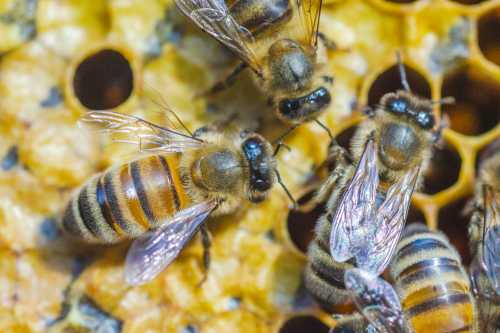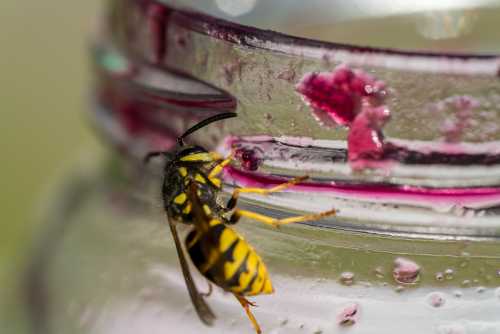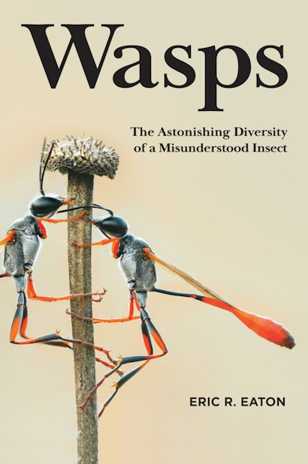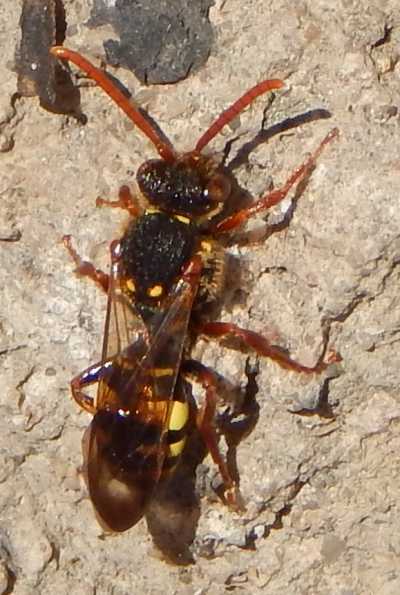What Can Vegans Do About Wasp Nests?
If you are a vegan and find a wasp nest on your property (such as in your cavity wall), you may be wondering what you can do about it.
On the one hand, you are opposed to killing other living creatures, but on the other, you're not keen on having this notorious stinging insect so close to home.
Furthermore, it is now increasingly recognised that wasps are very beneficial insects - even a lot of pest control companies state this on their websites (to their credit!).
Clearly, ethical pest controllers recognise the importance of balance: it's wrong to kill a beneficial insect for the sake of it, and better to reserve destroying nests only for those times when it's necessary.
I'm A Vegan, What Should I Do About A Wasp Nest?
I had such a query from a lady in the UK which I am adding here (slightly tweaked for reading ease) for the benefit of others:
Hi, I wonder if you can help?
We have what looks to be quite a large number of wasps entering an air brick, that leads to the cavity wall space. They look to be nest building.
We are vegans and would prefer not to kill the wasps but our concern is that they will cause damage in the cavity.
Is there anything that will halt their nest building? I've tried peppermint oil around the air brick.
Will buying a fake hive change their minds? 😂
This is near the back door!
Kind regards. Julie, UK
In a further email, she also added:
The air brick is above head height and is cemented in. We cannot see inside at all....
They aren't bothering us at all at the moment.
Below is my response in case you face a similar dilemma.
HOWEVER, PLEASE NOTE:
Firstly, I wish to state that all scenarios are different, and the decision is ultimately yours.
If you have a severe allergy to stings that could, for instance, result in anaphylactic shock, or another member of your household is vulnerable, you should obviously take this into account.
Firstly, check they're not honey bees!
 Honey Bees
Honey Bees A Wasp
A WaspFirstly, do check whether they are honey bees rather than wasps (I find that misidentification sometimes occurs).
If it's honey bees, it may be possible to get them removed professionally without them being killed, as long as you choose the right professionals - see my page about bees in the wall.
If they are wasps, that will be a different matter, and professionals will exterminate them.
Will a fake hive get rid of an active wasp nest?
I recommend 'Waspinator', (cheaper imitations are sometimes made of paper that disintegrates after a week of rain).
Or you can have a go at making your own from grey, sturdy fabric, preferably with a similar pattern to replicate a wasp nest.
But...
Waspinators won't drive an established nest away, as far as I am aware, because once wasps are committed to a colony, they will do their best to maintain it (very admirable really).
However, a Waspinator may help dissuade wasps from joining you for a meal if you hang it outside where you are dining al fresco.
Next year, site a Waspinator in very early spring to dissuade wasps from building new nests.
You could also attach shiny aluminium foil to the area around the site of the old nest to dissuade them from starting a new nest in the same location (I am told wasps don't like it - again).
Will a wasp nest damage my cavity wall / property / building?
I don't know anything about your particular building, but wasp nests are basically just paper (which they probably invented!).
Wasps collect fine, tiny slithers of wood and plant matter, usually bits of tree bark or the scrapings from a weathered
fence post, telegraph pole or similar (see: structure of a social wasp nest).
Wasps won't chew into brick work to build the nest, but will 'paste' their nest cells onto the brickwork.
You can learn more on my page about how wasps build nests.
Will the wasps come back and build a nest next year?
It is possible wasps may return to build a new nest close to the original site, even if you remove the current nest. Steps can be taken to reduce the risk of that happening.
As for the current nest, it's possible (even probable) the wasp nest will die out naturally on its own by late autumn.
My sister had such a nest in her chimney cavity, and she simply blocked up the fire place and closed the door into that room, and there was no further activity by the wasps from late autumn. The wasps did not come back the following year. (If you have a nest in your chimney, please see my specific advice about wasps and bees in the chimney).
In the UK, I think it would be unusual for a nest to survive the winter, but that may depend on the species and weather factors.
So finally, what can vegans do about wasp nests?
Again, it may depend on your personal circumstances but it seems to me, your choices are:
- Call pest control anyway, and allow them to be killed.
OR - Put up with it for this year, hoping that you will be more fortunate for next year, and take measures to deter future nests.
However, if the wasps survive to next year, or the nest becomes overwhelming, you could call out pest control at that point.
If you prefer to leave it be for this year and see what happens, there are a few things you can do if you are wary of wasps:
- Spray a deet-free insect repellent around your door area and use a Waspinator near the door.
- Keep dogs away from nests.
- Attach netting screen to windows, thus enabling you to open windows in summer whilst keeping wasps out (beware sticky insecticide-impregnated window screens that can trap and kill butterflies, bees etc also!).
For more ideas, see my page about repelling bees and wasps.

